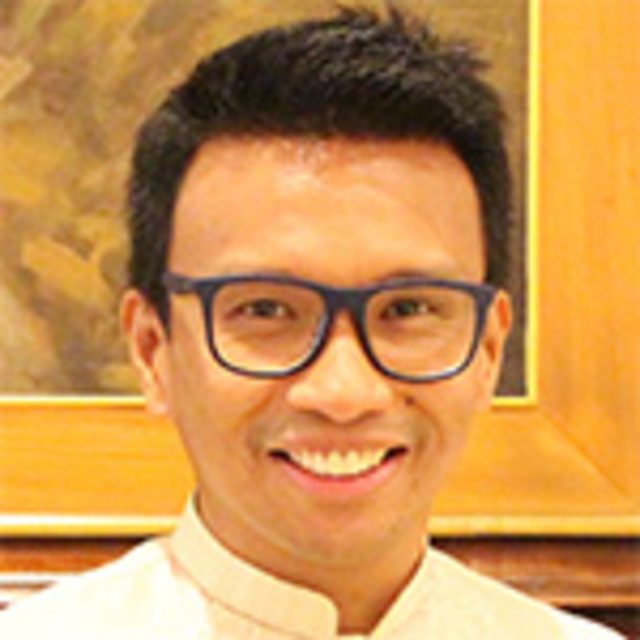SUMMARY
This is AI generated summarization, which may have errors. For context, always refer to the full article.
![[OPINION] Woke and elitist](https://www.rappler.com/tachyon/r3-assets/612F469A6EA84F6BAE882D2B94A4B421/img/0448CA66989648D0A68CBD77E16D6CD3/woke-and-elitist-sept-26-2019.jpg)

Philippine society celebrates academic achievements.
If you were an achiever in elementary, chances are, your parents framed your medals and hanged them right next to your graduation photos.
In rural Bohol, where my father grew up, it is still common to see the names and professions of relatives engraved on a visible part of the house façade.
In Marawi, tarpaulin banners are common, but not to advertise products. They line the main highway to congratulate relatives for whatever academic accomplishment one might think of.
Although unnecessary, titles professors hold in academia denote rank and graduate degrees.
All these point to the same reality. Whether in the confines of a private house or the halls of a university, academic markers celebrate intellectual merit.
But behind the celebration is a sad reality.
Academic markers are there as status symbols. They are sticky reminders that in our society, not everybody gets educated. And among those who do, not everybody gets the same quality.
Pierre Bourdieu, the French sociologist, is thus right in exposing an uncomfortable truth. Academic achievements, “inculcated by the educational system, are subordinated to social functions” and they “derive their specific efficacy from their apparent neutrality.”
Celebrating wokeness
The same is in operation in social media where woke users are celebrated, at least judging by the number of followers they have and how viral their tweets get.
As to what constitutes woke users is rather unclear, but it helps to see what they are pitted against. Much of it is fluid, but the contours are discernible.
For the most part woke users are those who offer counterintuitive statements about issues of the day. They often make remarks in response to other Twitter users over issues that are rather predictable. Poverty, patriarchy, and LGBT concerns are staple.
That they do so is a clear positioning of their distinctiveness as online actors.
Many of them are university students who are already popular in their respective circles. Some of them might be student leaders or, yet again, academic achievers.
But we’ve seen them too among celebrities who took their peers to task during the elections. And even among alter users, anonymous accounts with a lot of sexual content, the woke tend to be politically enraged and engaged.
To be woke is therefore to be counterintuitive, the seeming mark of intelligence. In this sense the woke is the antagonist of the banal.
Dangerous
But to be woke is in itself a dangerous feat, not because it attracts criticism.
Note: Disagreements are useful to the extent that they deepen democratic conversations and appreciation of the complexity of issues at stake. As my fellow sociologist Ash Presto of UP Diliman has noted in her opinion piece, criticism is “an essential feature of progress and community care.”
It is dangerous because being woke – as an identity and as a celebrated category – thrives in a context of inequality. Intellectually privileged, it takes advantage of ignorance. This much is clear when clout and influence are measured against the number of followers, and not by the ideas that they deepen and the oppressors they confront.
Indeed, how can we expect the supposedly woke to wake people up when much of social media is an echo chamber? And if they do so, do they foster worthwhile conversations in the end?
Going back to the roots
To be woke finds its roots in popular culture.
In the US, it involved being aware of the struggle of African Americans. Eventually the Black Lives Matter movement picked it up, at which point being woke was no longer just about being aware: “Activists were woke and called on others to stay woke.”
In a hard-hitting sense, there is nothing to be celebrated about being woke since at its core it is not about an individual.
It is about the fight of an entire community whose existence is under threat. In the context of Philippine society, the struggles are endless, be it by the homeless, the queer, or the victim of displacement and conflict.
Too bad though that in social media, battle lines have been drawn over who is woke and who is not. Factions have been created and character assassinated in the name of legitimacy and authenticity.
This is tragic. The moment when a collective struggle becomes a battle over personalities is exactly the moment the work for social justice begins to fall apart.
This is why celebrating the woke among us is such an unwoke thing to do.
Here it might pay to return to its original meaning. This one’s astonishing. Wokeness, as a word, was first recorded a thousand years ago, and it meant inferiority or weakness.
There is so much lesson here for woke individuals who celebrate intelligence but remain ignorant of the privileges that accompany it. – Rappler.com
Jayeel Cornelio is a sociologist in the Development Studies Program at the Ateneo de Manila University.
Add a comment
How does this make you feel?
There are no comments yet. Add your comment to start the conversation.